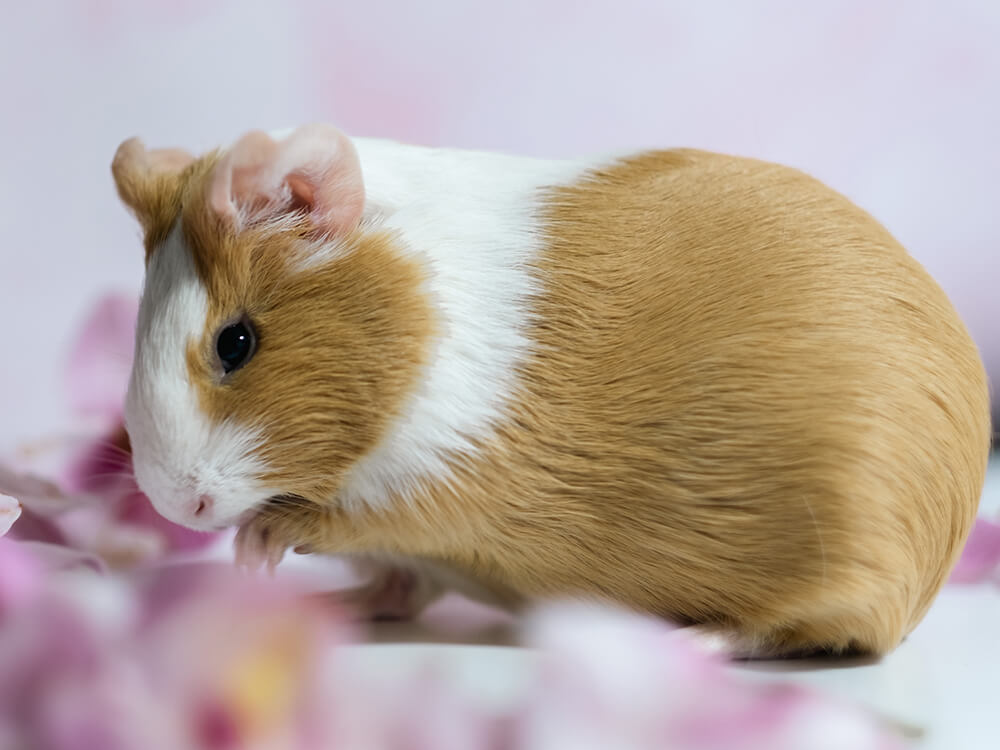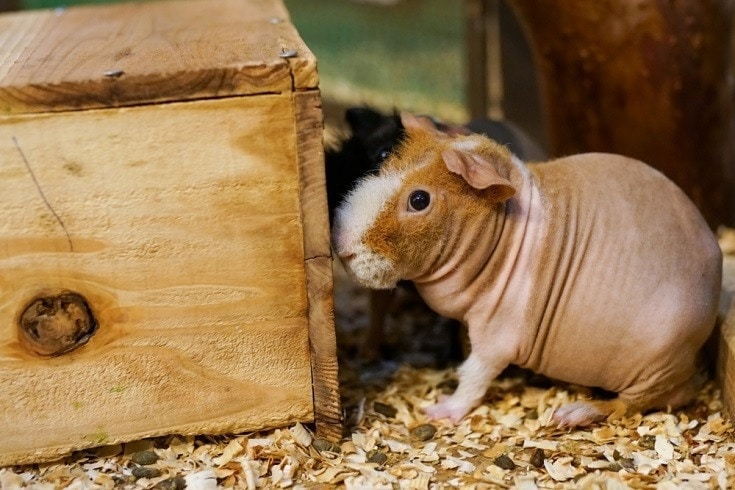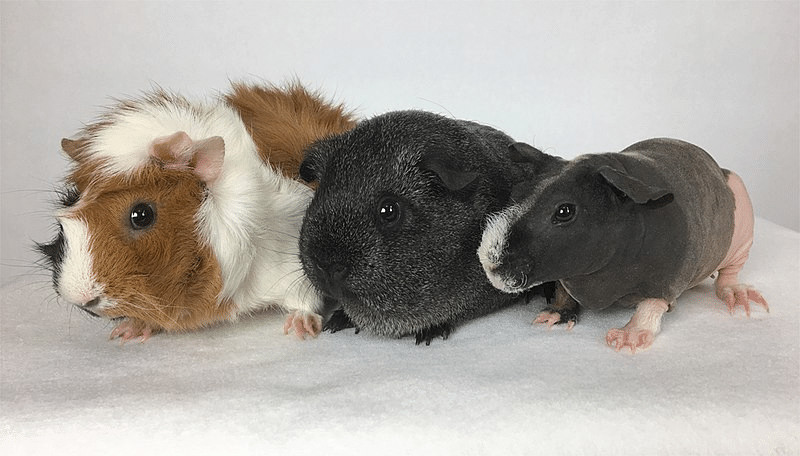Guinea pigs, or cavy as they are commonly known, have been domesticated for over 3,000 years and have become beloved pets all around the world. These small, social rodents with their endearing squeaks and distinctive personalities make great companions for people of all ages. However, like all animals, guinea pigs have a limited lifespan, and as responsible owners, it is essential to understand the factors that influence their longevity.
In this comprehensive guide, we will explore the average lifespan of guinea pigs, the various factors that can affect their lifespan, and how to ensure a long and healthy life for your furry friend. From genetics and breed to diet and living conditions, we will cover everything you need to know about guinea pig lifespan.
>> READ MORE:
- Normal Guinea Pig Heart Rates A Comprehensive Guide
- The Guinea Pig Nightlife Deciphering the Nocturnal Myth
- Do Guinea Pigs Hibernate? Understanding Their Winter Needs
- Hamster vs. Guinea Pig A Comprehensive Guide to Choosing Your Perfect Pocket Pet
Contents
Factors Influencing Guinea Pig Longevity

A guinea pig’s lifespan can vary significantly depending on various factors. Some of these factors are within our control as pet owners, while others are determined by genetics. It is crucial to understand these factors to provide the best care for your guinea pig and help them live a long and happy life.
Genetics and Breed
One of the most significant factors influencing a guinea pig’s lifespan is its genetics and breed. Different breeds of guinea pigs have varying lifespans, and some are more prone to certain health issues than others. For example, the American guinea pig has an average lifespan of 3-5 years, while the Abyssinian guinea pig can live up to 8 years. However, it is important to note that these are just averages, and individual guinea pigs may live longer or shorter, regardless of their breed.
Another essential factor to consider is the genetic health of your guinea pig. Many pet store guinea pigs are bred for quick profits, with little regard for their genetic health. As a result, they may have underlying health issues that can significantly impact their lifespan. On the other hand, responsible breeders prioritize the health of their guinea pigs and ensure they are free from any genetic diseases or defects.
Nutrition and Diet
Another crucial factor in determining a guinea pig’s lifespan is their diet and nutrition. Like humans, guinea pigs require a balanced diet to stay healthy and thrive. Their diet should consist of fresh hay, high-quality pellets, and fresh vegetables. The lack of essential nutrients in their diet can lead to various health problems, such as dental issues, digestive problems, and even obesity, which can significantly impact their lifespan.
It is also essential to ensure your guinea pig has access to clean, fresh water at all times. Dehydration can cause numerous health issues and can be fatal for your furry friend.
Environmental Enrichment and Exercise
Guinea pigs are active animals by nature, and it is crucial to provide them with an environment that allows them to exhibit their natural behaviors. Lack of mental and physical stimulation can lead to boredom and stress, which can negatively affect a guinea pig’s health and lifespan. Providing them with appropriate toys, hiding places, and regular exercise is essential for their wellbeing.
Adequate space is also crucial for a guinea pig’s overall health. A single guinea pig should have at least 7.5 square feet of living space, while pairings or small groups require more significant areas. A lack of space can lead to aggression, stress, and health problems, ultimately shortening their lifespan.
Average Lifespan of Guinea Pigs: Breed and Genetics

As mentioned earlier, the average lifespan of a guinea pig can vary significantly depending on factors such as genetics and breed. Here is a breakdown of the average lifespan of some of the most common guinea pig breeds:
| Breed | Average Lifespan |
|---|---|
| American | 3-5 years |
| Abyssinian | 5-8 years |
| Peruvian | 4-7 years |
| Skinny | 5-7 years |
| Teddy | 4-7 years |
It is essential to remember that these are just averages, and your guinea pig may live longer or shorter than this. Their lifespan can also be influenced by various other factors, including diet and overall care.
Nutrition and Diet: Key to a Long Life

A balanced and nutritious diet is crucial for the overall health and wellbeing of any animal, including guinea pigs. Their diet should consist of three main components – hay, pellets, and fresh vegetables. Here is a breakdown of each component and its importance in a guinea pig’s diet:
Hay
Hay should make up the majority of a guinea pig’s diet. Timothy hay is an excellent choice for guinea pigs as it is low in calcium and high in fiber, which is essential for their digestive health. It also helps wear down their continuously growing teeth, preventing dental issues. Hay also provides mental stimulation for guinea pigs as they love to forage through it.
Pellets
High-quality pellets that are specifically formulated for guinea pigs should make up a small portion of their diet. These pellets provide essential vitamins and minerals that may not be adequately provided through hay and vegetables. However, it is crucial to monitor the amount of pellets given to your guinea pig to prevent obesity.
Vegetables
Fresh vegetables are an essential part of a guinea pig’s diet as they provide them with essential vitamins and nutrients. Some safe vegetables for guinea pigs include bell peppers, cucumbers, carrots, and leafy greens such as spinach and romaine lettuce. It is important to introduce new vegetables gradually and in small amounts to prevent digestive upset.
Environmental Enrichment and Exercise: Promoting Health and Wellbeing
As mentioned earlier, environmental enrichment and regular exercise are crucial for a guinea pig’s overall health and wellbeing. Here are some tips to ensure your guinea pig gets enough mental and physical stimulation:
- Provide them with appropriate toys to play with, such as wooden chew toys, tunnels, and balls.
- Create tunnels and hiding places using cardboard boxes or PVC pipes.
- Rotate their toys and rearrange their living space regularly to prevent boredom.
- Allow them to explore and play outside of their cage under supervision.
- Set up an obstacle course for them to navigate through.
- Use food puzzles to stimulate their natural foraging behavior.
Regular exercise is also essential for keeping your guinea pig physically fit and mentally stimulated. Provide them with a large enough living space, or allow them to have supervised playtime outside of their cage.
Recognizing Signs of Aging and Providing Senior Care

Like any animal, guinea pigs age, and it is essential to recognize the signs of aging to provide them with appropriate care. Some common signs of aging in guinea pigs include:
- Decreased activity level
- Weight loss
- Difficulty moving or stiffness
- Changes in appetite
- Changes in fur texture or color
- Dental problems
- Vision or hearing loss
If you notice any of these signs in your guinea pig, it is crucial to consult with a veterinarian to ensure they receive proper care. Older guinea pigs may require dietary changes, more frequent vet visits, and modifications to their living space to accommodate their changing needs.
Conclusion
Guinea pigs can make wonderful pets, but it is our responsibility as owners to understand the factors that influence their lifespan and take necessary steps to ensure they live a long and healthy life. From genetics and breed to nutrition and environmental enrichment, there are many factors that can impact a guinea pig’s lifespan. By providing them with a balanced diet, adequate exercise, and a stimulating environment, you can help your furry friend live a happy and fulfilling life. Remember to consult with a veterinarian for any concerns about your guinea pig’s health to ensure they receive the best care possible.
